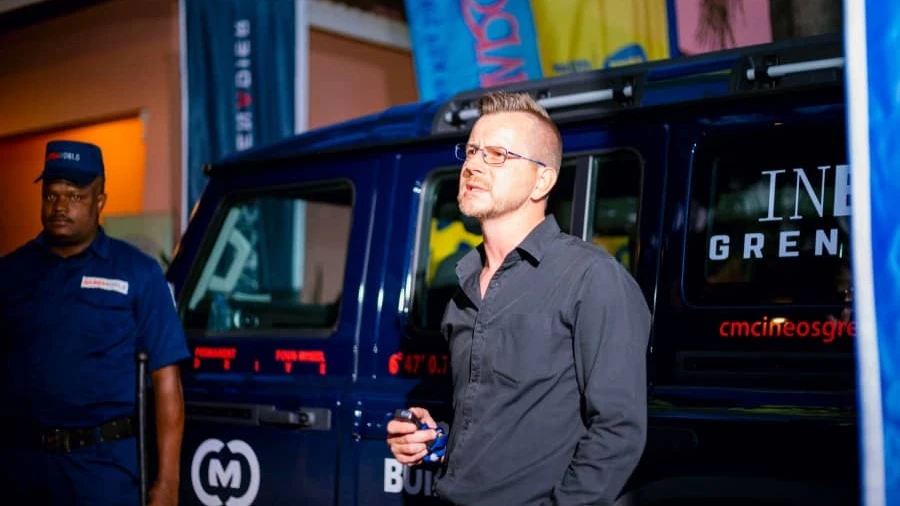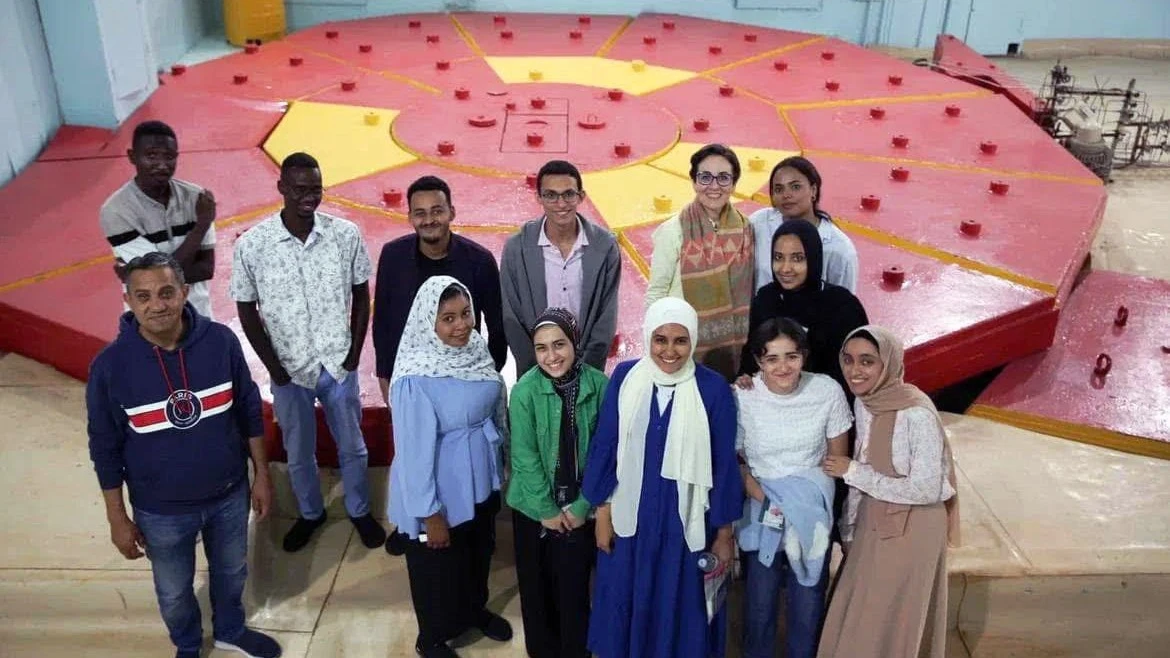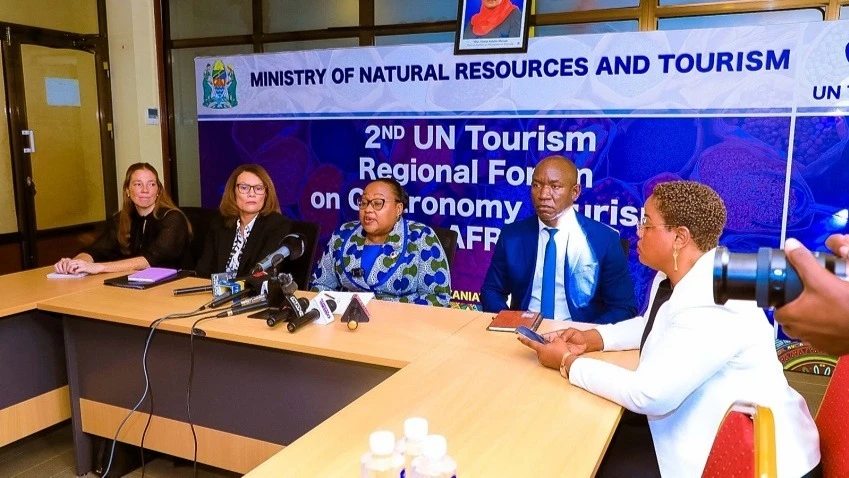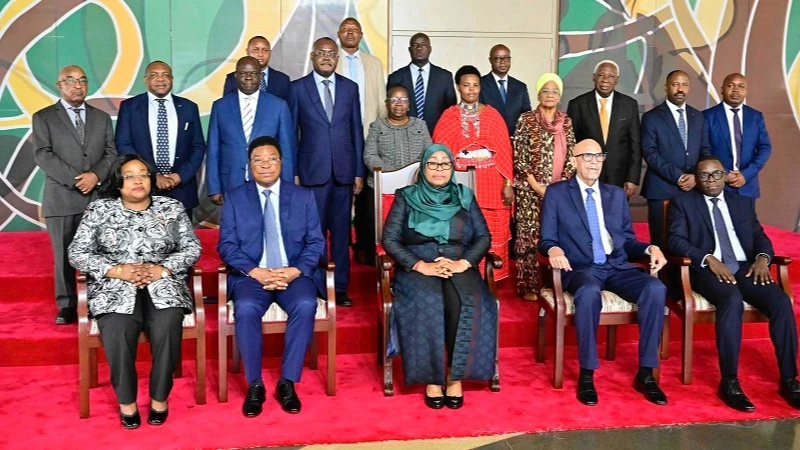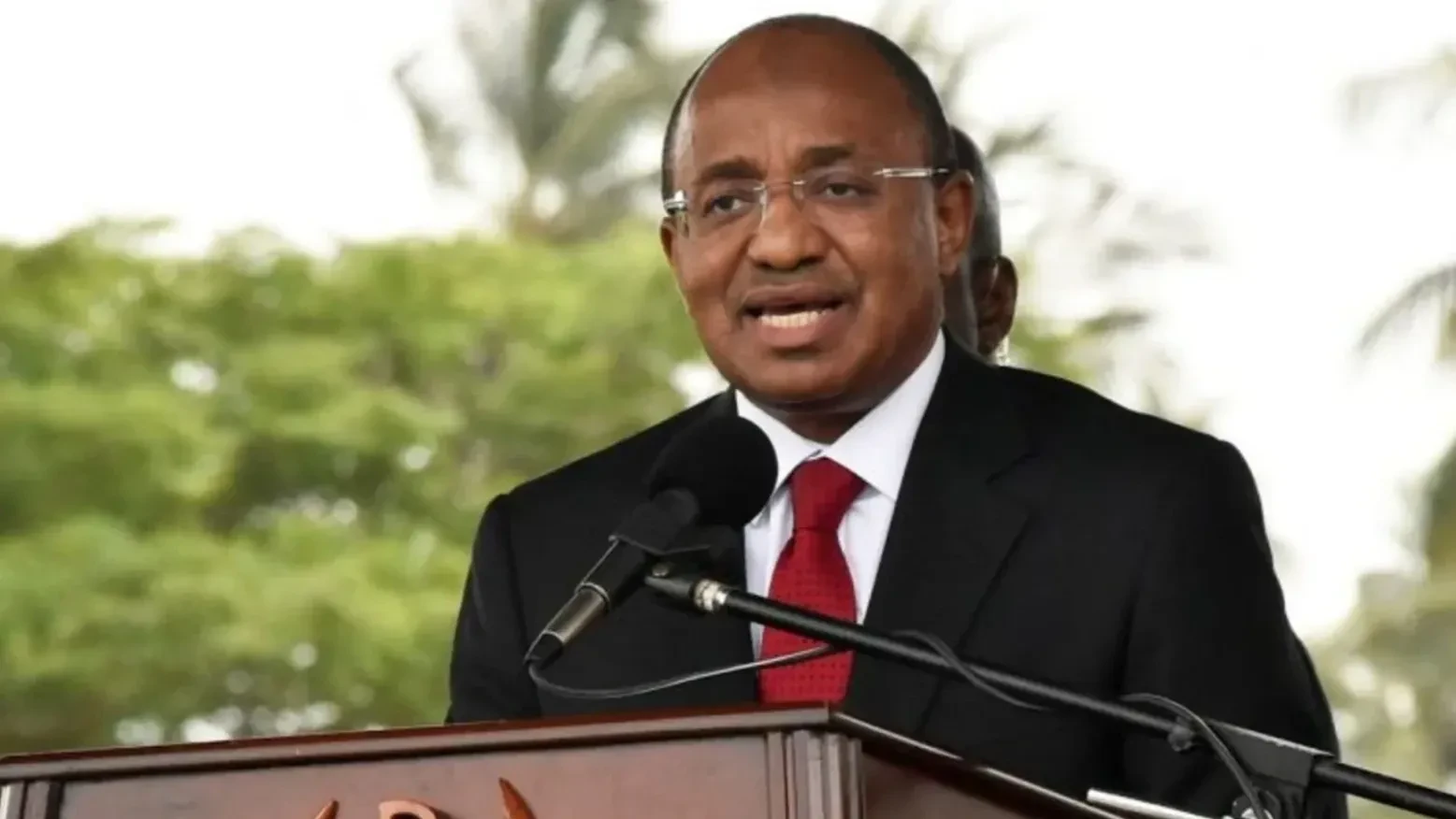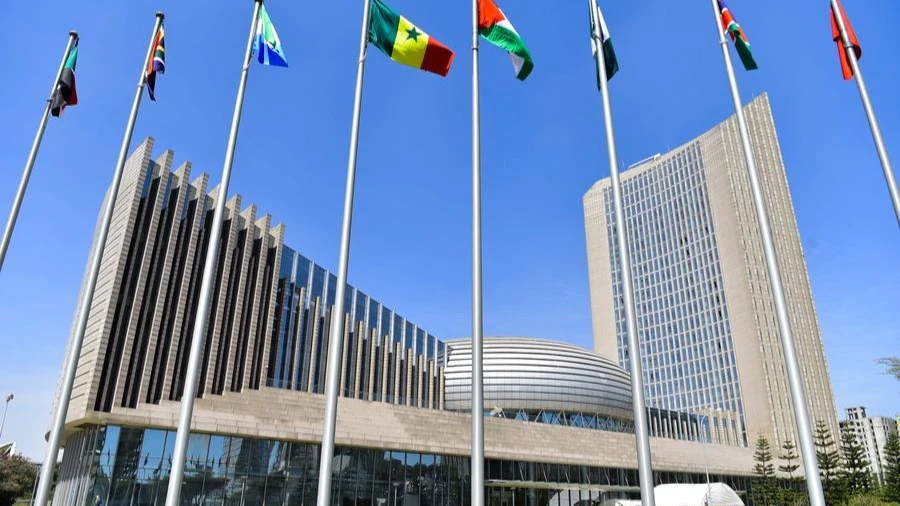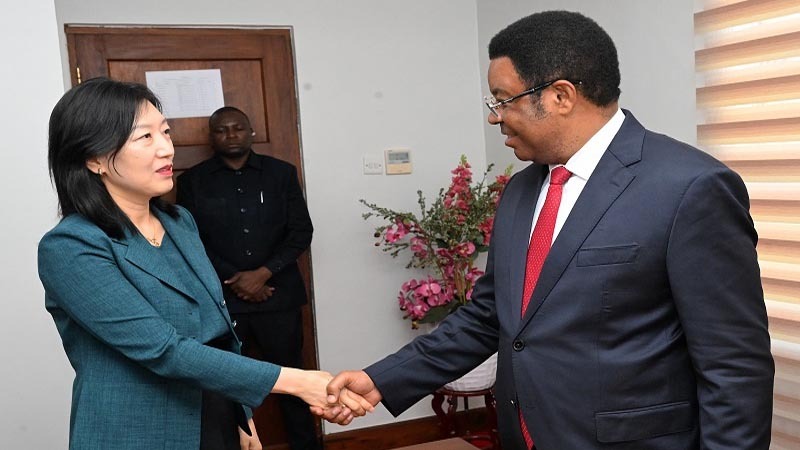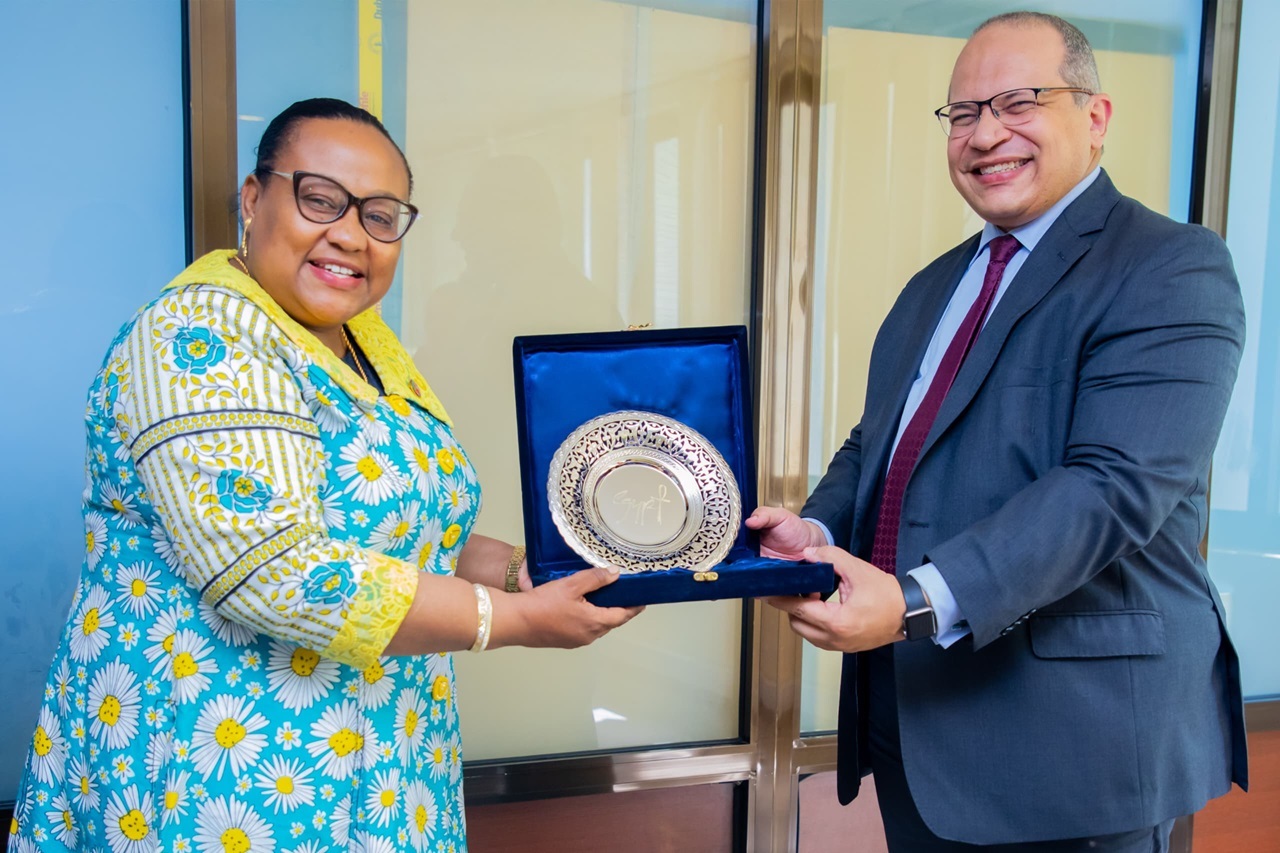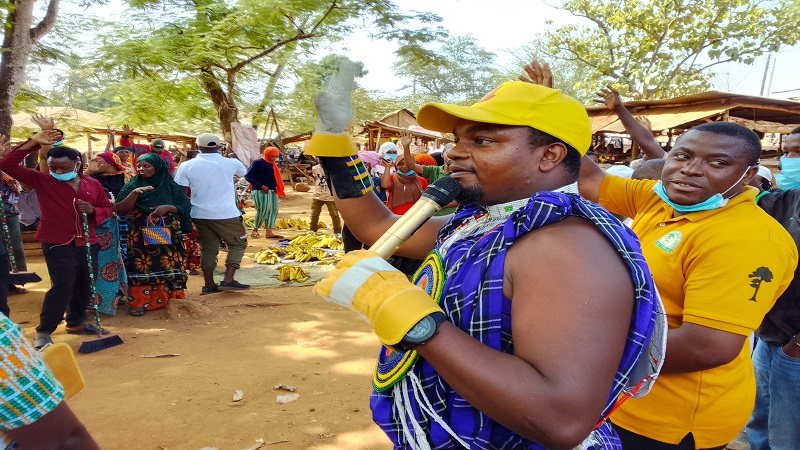Samia honoured for spearheading changes in health sector

THE Global Goalkeeper Award, presented annually by the Bill & Melinda Gates Foundation, honours leaders who have made significant contributions toward achieving the United Nations' Sustainable Development Goals (SDGs).
Earlier this month President Samia Suluhu Hassan made history as the first African leader to receive the prestigious Global Goalkeeper Award from the Gates Foundation. This recognition highlights Tanzania’s significant achievements in maternal, new-born, child nutrition and health (MNCNH).
Tanzanians are celebrating this milestone and continue to support President Samia in her efforts to enhance the well-being of her people.
President Samia was honoured with the award for her outstanding contributions to maternal and child healthcare. Her leadership has been instrumental in advancing public health, sustainable development, peace, and democracy.
In 2023, the award was given to Prime Minister Fumio Kishida of Japan for his commitment to universal health coverage, integrating the global goals into Japan’s development policies, and enhancing global health systems to prevent future pandemics.
President Ursula von der Leyen of the European Commission received the award in 2022 for her leadership during the COVID-19 pandemic and efforts to promote global health equity.
The award was presented to President Nana Akufo-Addo of Ghana in 2021 for his dedication to sustainable development and efforts to improve education and healthcare in Ghana.
Chancellor Angela Merkel of Germany was honoured in 2020 for her leadership in global health initiatives and commitment to multilateral cooperation, in 2019 Prime Minister Narendra Modi of India was recognized for the Swachh Bharat Abhiyan (Clean India Mission), a nationwide campaign to improve sanitation and hygiene and President Emmanuel Macron of France received the award in 2018 for his leadership on climate change and efforts to accelerate the implementation of the Paris Agreement.
Transforming healthcare in Tanzania
Previously, many healthcare facilities in Tanzania struggled with overcrowding and inadequate services. In some wards, 5,000 people had to rely on a single room for all medical needs, from consultations and wound dressing to medication distribution.
Patients often faced long wait times and discomfort, with pregnant women, new-borns, and emergency cases suffering the most.
Additionally, rural healthcare facilities faced severe staffing shortages. Doctors and nurses had to leave their posts at 6p.m over lack of accommodations, leaving patients without care during critical hours.
Under President Samia’s leadership, the situation has drastically improved. Hospitals now provide better services, with well-equipped facilities and sufficient staff available around the clock. Spacious and modern healthcare centers have been established closer to communities, ensuring timely medical attention.
A new era for maternal, child healthcare
Expectant mothers are particularly benefiting from these advancements. Access to maternity services has improved significantly, with enhanced facilities, increased medical personnel, and better equipment. The introduction of specialized transportation services ensures that pregnant women and children can reach referral centers quickly and safely.
One notable initiative is m-Mama, a mobile emergency transport service launched in April 2022. This programme, a partnership between the government, the Vodacom Foundation, and other stakeholders, addresses the critical shortage of ambulances. By providing emergency transport, m-Mama ensures that more women give birth safely in health facilities.
Many hospitals now feature advanced medical services, including operating theatres, ultrasound and X-ray facilities, and specialized care for people with disabilities. These improvements have contributed to a significant reduction in maternal and child mortality rates.
Decline in mortality rates
Tanzania’s efforts in maternal and child healthcare have yielded remarkable results. According to the National Demographic and Health Survey and Malaria Indicators Survey 2022, maternal mortality has declined by 80 percent, from 556 deaths per 100,000 live births to 101 deaths per 100,000 live births.
Child mortality has also dropped by 35 percent, from 67 deaths per 1,000 children to 43 deaths per 1,000 children, as reported in January 2024.
During the launch of the report, President Samia reaffirmed her commitment to further improving these figures, aiming for zero preventable maternal deaths.
As of 2021, Tanzania had 8,549 healthcare facilities, with dispensaries making up the majority at nearly 7,200. Since President Samia took office, the government has built 404 new hospitals and 956 health centers nationwide.
A significant initiative under her administration is the establishment of Kangaroo Mother Care (KMC) units in 245 hospitals. This World Health Organization (WHO) endorsed technique enhances the survival chances of premature and low-birth-weight infants through skin-to-skin contact and exclusive breastfeeding.
Why President Samia
The Gates Foundation recognized President Samia’s leadership and dedication to maternal, new-born, and child health. The Global Goalkeeper Award was personally presented to her in Dar es Salaam by Dr Anita Zaidi, President of the Gender Equality Division at the Gates Foundation.
The award acknowledges exceptional efforts toward achieving the Sustainable Development Goals (SDGs) by 2030. Tanzania’s strides in healthcare have been fuelled by strategic investments and innovative programs that have dramatically improved maternal and child survival rates over the past two decades.
Some key achievements include expanded healthcare access. Nearly 2,000 new health facilities have been established, bringing quality care closer to communities and increasing skilled care during pregnancy and childbirth.
Innovative solutions like m-Mama: This initiative has addressed critical gaps in emergency transport and maternal care, ensuring safer deliveries for expectant mothers. Efforts to combat malnutrition, Programmes tackling stunting, micronutrient deficiencies, and malnutrition have contributed to better health outcomes for mothers and children.
Dr Anita Zaidi emphasized the significance of investing in women and children, stating: “Investing in women and children is an investment in healthy families, resilient communities, and a growing economy. In order to do well, you have to be well. When women have access to the tools and services they need to live healthy, productive lives, all of society benefits.”
President Samia Suluhu Hassan’s visionary leadership continues to transform healthcare in Tanzania. With reduced maternal and child mortality rates, improved medical infrastructure, and innovative healthcare initiatives, she is driving the country towards a healthier and more prosperous future. The Global Goalkeeper Award is a well-deserved recognition of her dedication and impact on the lives of millions of Tanzanians.
Top Headlines
© 2025 IPPMEDIA.COM. ALL RIGHTS RESERVED











